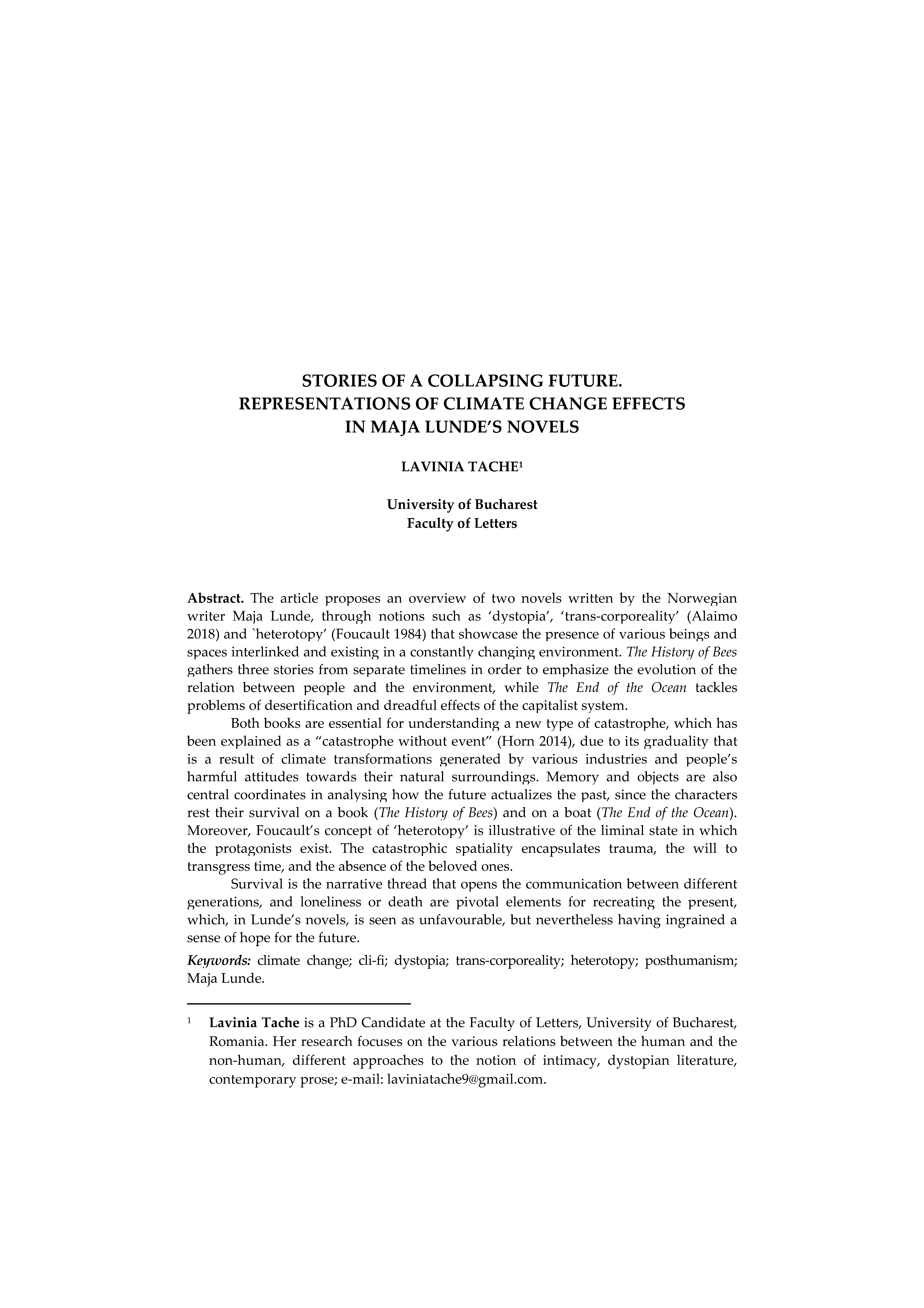STORIES OF A COLLAPSING FUTURE. REPRESENTATIONS OF CLIMATE CHANGE EFFECTS IN MAJA LUNDE’S NOVELS
DOI:
https://doi.org/10.62229/aubllrlxxii/23/10Cuvinte cheie:
climate change, cli-fi, dystopia, trans-corporeality, heterotopy, posthumanism, Maja LundeRezumat
The article proposes an overview of two novels written by the Norwegian writer Maja Lunde, through notions such as ‘dystopia’, ‘trans-corporeality’ (Alaimo 2018) and `heterotopy’ (Foucault 1984) that showcase the presence of various beings and spaces interlinked and existing in a constantly changing environment. The History of Bees gathers three stories from separate timelines in order to emphasize the evolution of the relation between people and the environment, while The End of the Ocean tackles
problems of desertification and dreadful effects of the capitalist system.
Both books are essential for understanding a new type of catastrophe, which has been explained as a “catastrophe without event” (Horn 2014), due to its graduality that is a result of climate transformations generated by various industries and people’s
harmful attitudes towards their natural surroundings. Memory and objects are also central coordinates in analysing how the future actualizes the past, since the characters rest their survival on a book (The History of Bees) and on a boat (The End of the Ocean). Moreover, Foucault’s concept of ‘heterotopy’ is illustrative of the liminal state in which the protagonists exist. The catastrophic spatiality encapsulates trauma, the will to transgress time, and the absence of the beloved ones.
Survival is the narrative thread that opens the communication between different generations, and loneliness or death are pivotal elements for recreating the present, which, in Lunde’s novels, is seen as unfavourable, but nevertheless having ingrained a
sense of hope for the future.




